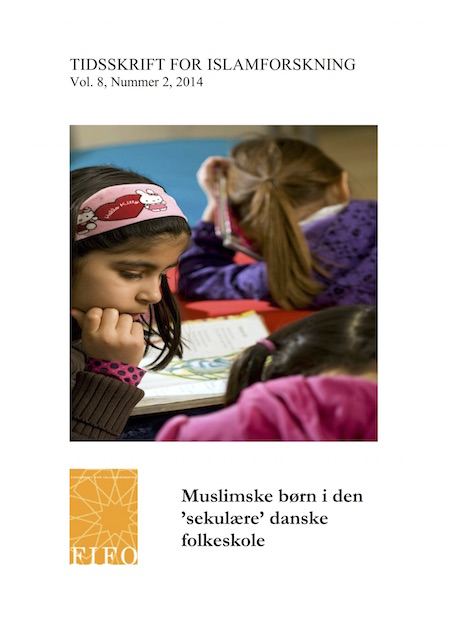Den private religion: Fortolkninger af muslimske børns religiøse tilhørsforhold i en dansk folkeskole
DOI:
https://doi.org/10.7146/tifo.v8i2.25336Keywords:
folkeskolen, muslimer, tilhørsforhold, religionAbstract
While the teaching of religion in the Danish folkeskole is a widely debated issue, there is little knowledge about how parents of Muslim background relate to the role of religion in the children’s daily school life. This article explores the meanings that teachers and parents at a school in the Danish province attribute to Muslim children’s religious backgrounds. Based on interviews with school leadership, teachers, parents and children, it particularly examines how they interpret the course ‘knowledge of Christianity’ and how they view the division of responsibility for teaching children about religion. It argues that while both parents and teachers understand religious belonging as a private matter that does not concern the school, they have different understandings of what this means and what it should imply for the children’s participation in school activities. The article further argues that the so-called encounter between ‘Muslim practices’ and ‘Danish values’ rather constitutes yet another example of negotiations that have always taken place in modern Danish society between the institutions of family and school.Downloads
Published
2017-02-05
How to Cite
Pedersen, M. H. (2017). Den private religion: Fortolkninger af muslimske børns religiøse tilhørsforhold i en dansk folkeskole. Scandinavian Journal of Islamic Studies, 8(2), 57–76. https://doi.org/10.7146/tifo.v8i2.25336
Issue
Section
Articles: Thematic section
License
Scandinavian Journal of Islamic Studies publish under creative commons license BY-NC-SA.





